
World
12:03, 31-Oct-2018
Seven killed in suicide bomb attack outside Kabul prison
Updated
12:03, 03-Nov-2018
CGTN
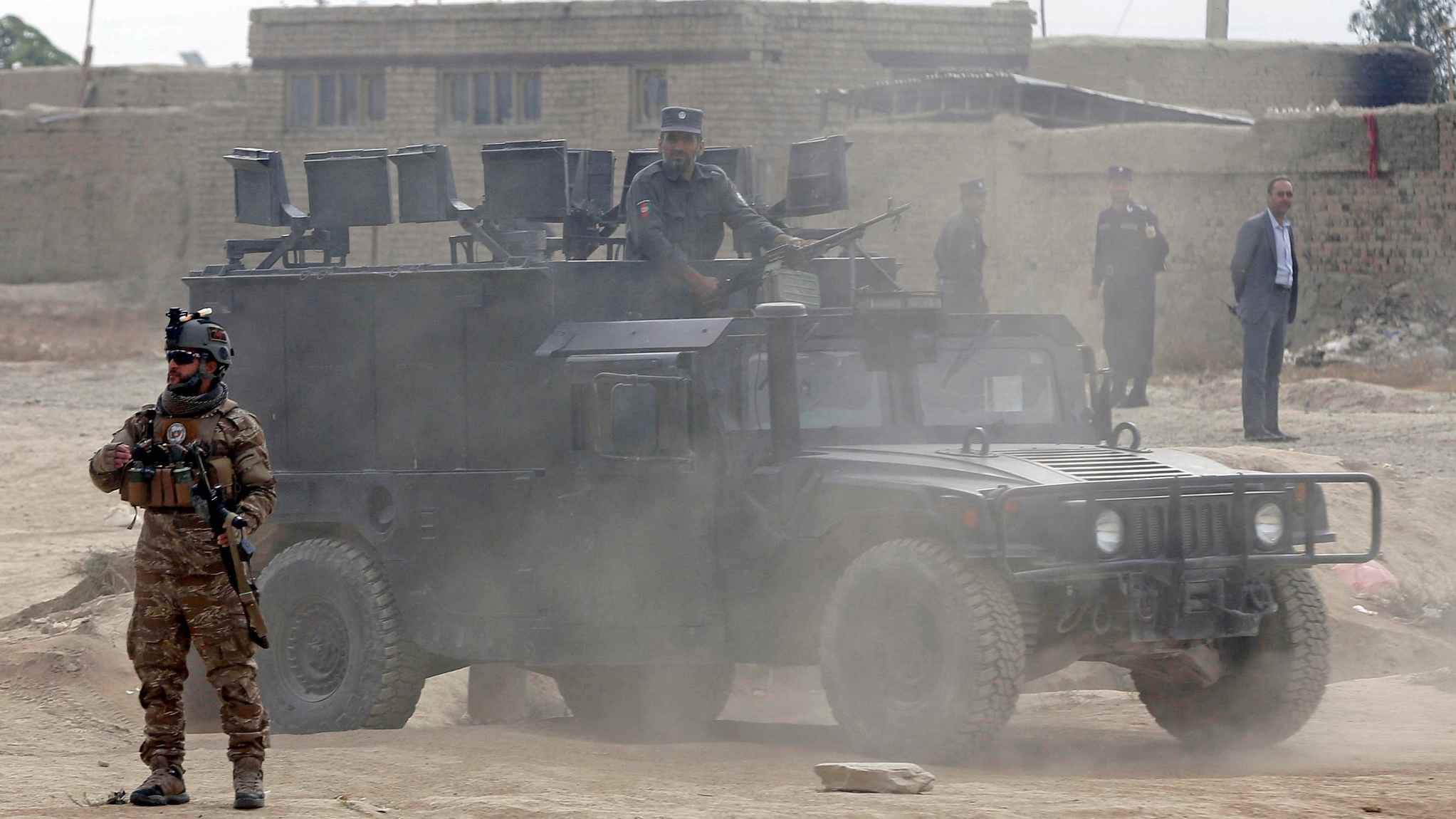
A suicide bomber targeting a bus carrying employees of Afghanistan's biggest prison killed at least seven people on Wednesday, officials said, in the latest militant attack in the war-torn country.
Another five were wounded in the blast near the facility in Kabul, which police spokesman Basir Mujahid said had hit a vehicle that staff of Pul-e-Charkhi prison were travelling in.
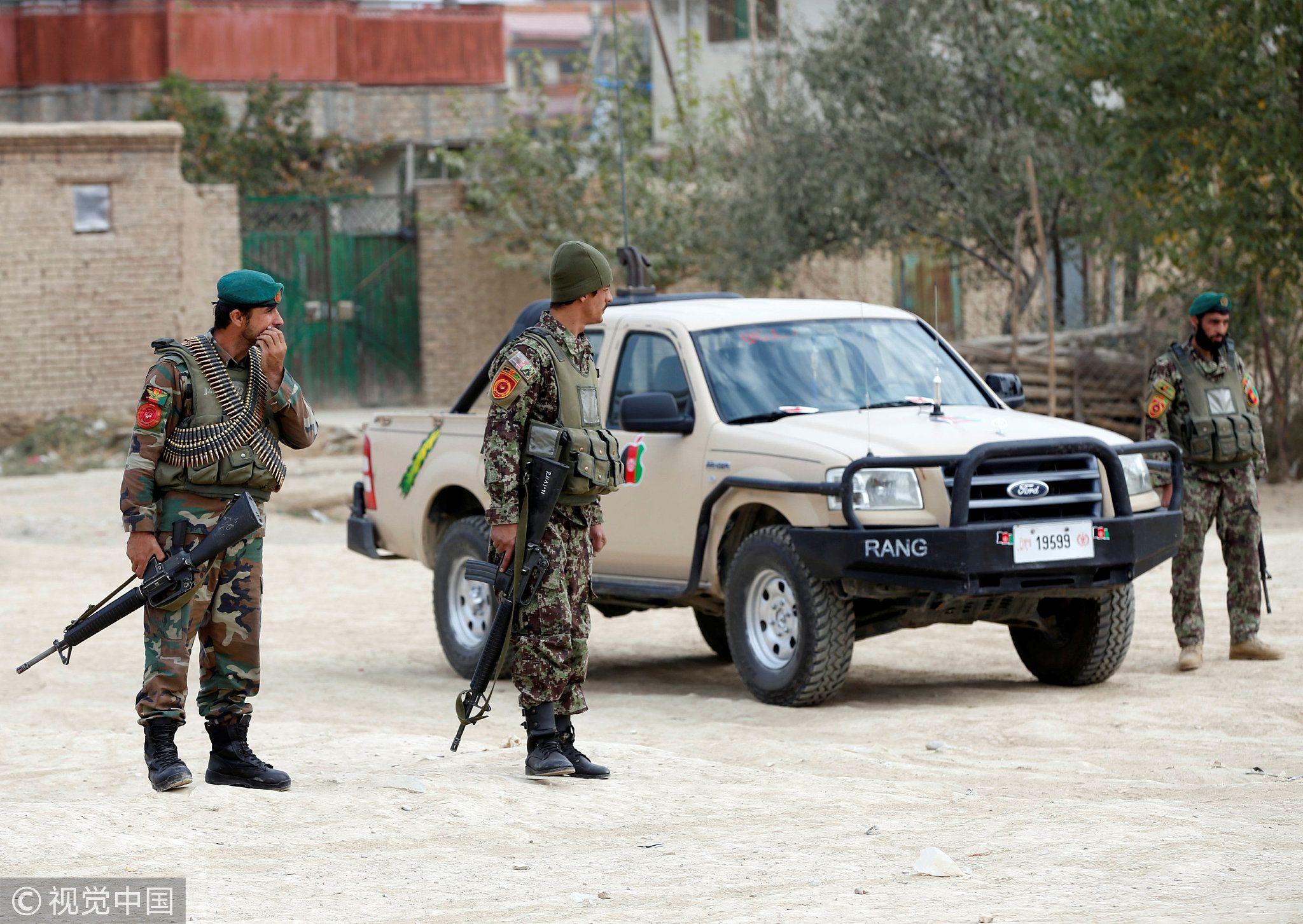
Afghan National Army soldiers monitoring the blast site in Kabul, Afghanistan, October 31, 2018. /VCG Photo
Afghan National Army soldiers monitoring the blast site in Kabul, Afghanistan, October 31, 2018. /VCG Photo
The attacker was on foot, interior ministry spokesman Najib Danish said. He struck as the bus was entering the jail in the east of the Afghan capital.
There was no immediate claim of responsibility for the explosion, but the Islamic State group has claimed most suicide attacks in Kabul in recent months.
The attack came days after a suicide bomber blew himself up near the entrance of Afghanistan's Independent Election Commission in Kabul, killing at least one person and wounding six.
A wave of election-related violence has killed or wounded hundreds across the country in recent months as the Taliban and ISIL step up attacks on Afghan security forces and government workers.
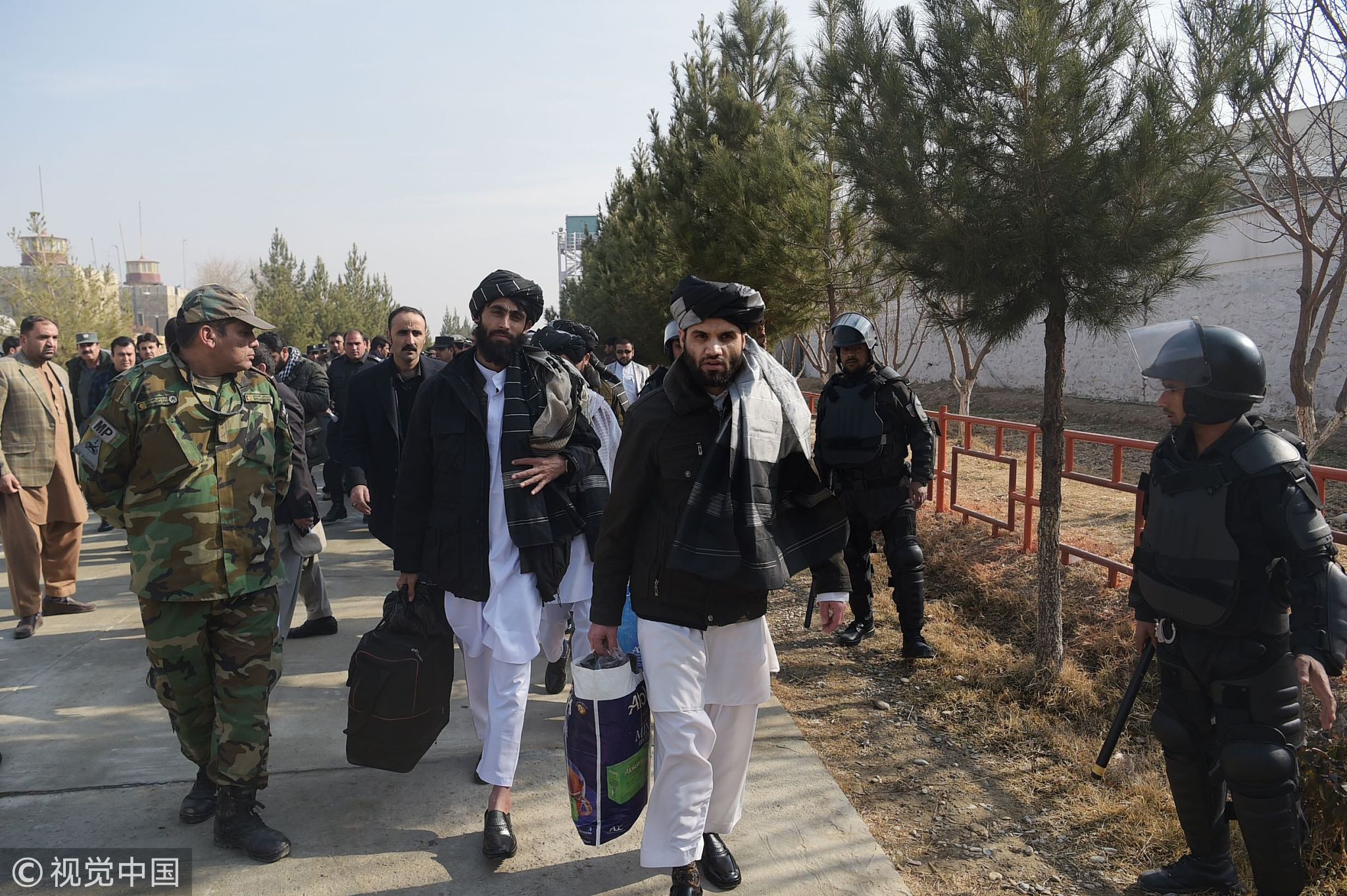
Afghan prisoners at Pul-e-Charkhi prison before their release on the outskirts of Kabul, January 11, 2018. /VCG Photo
Afghan prisoners at Pul-e-Charkhi prison before their release on the outskirts of Kabul, January 11, 2018. /VCG Photo
Afghanistan's long-delayed parliamentary election, which was held over three days this month, was marred by chaos and deadly attacks. Two days before voting began on October 20, a Taliban-claimed shooting killed a powerful police chief in the southern province of Kandahar.
General Abdul Raziq was among the three people killed in the brazen insider attack on a high-level security meeting in the provincial capital that was attended by General Scott Miller, the top US and NATO commander in Afghanistan.
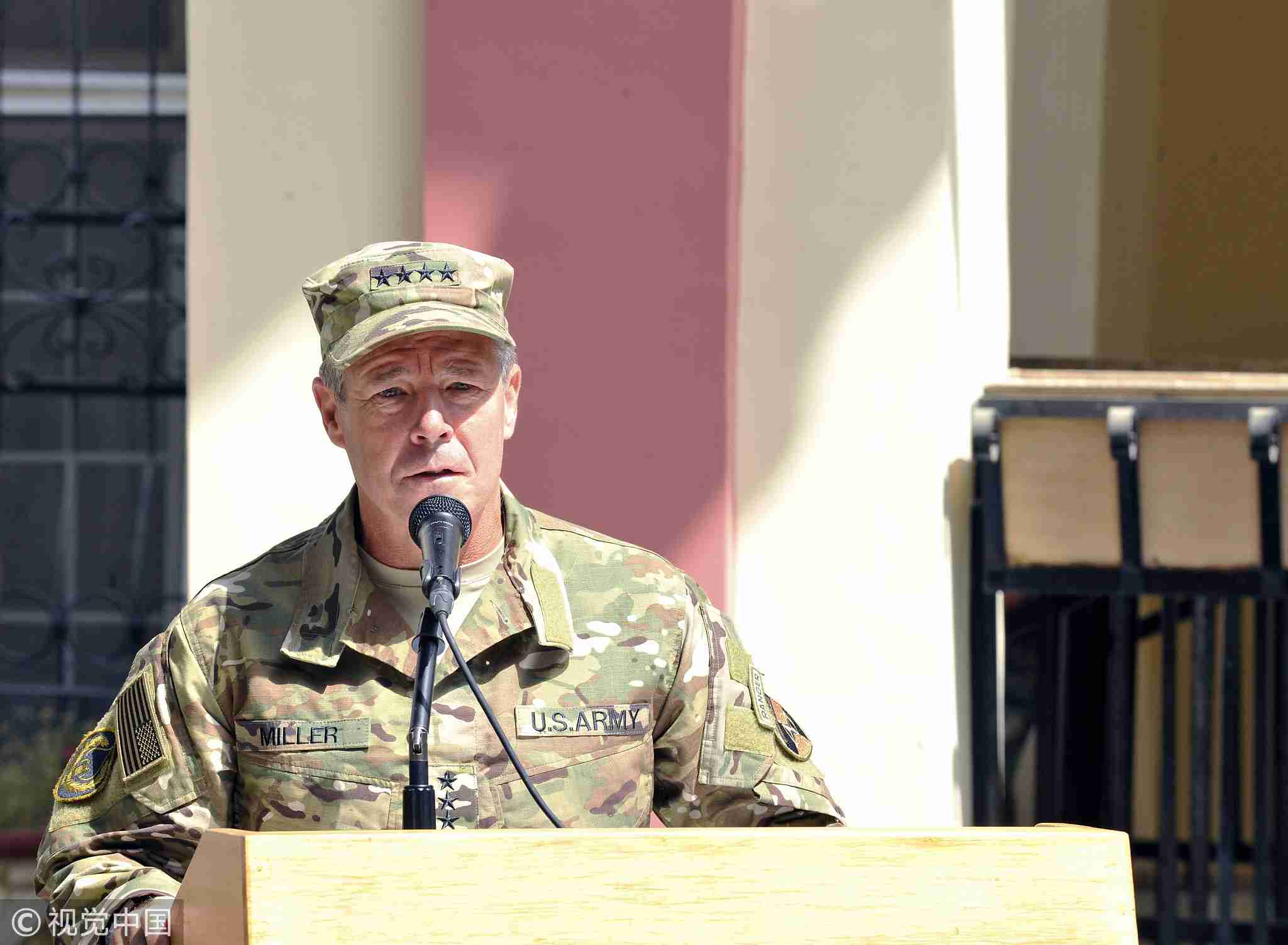
General Scott Miller, Resolute Support Mission commander, delivers remarks during the Resolute Support mission change of command ceremony in Kabul, Afghanistan, September 2, 2018. /VCG Photo
General Scott Miller, Resolute Support Mission commander, delivers remarks during the Resolute Support mission change of command ceremony in Kabul, Afghanistan, September 2, 2018. /VCG Photo
Miller escaped unhurt, but US Brigadier General Jeffrey Smiley was among the 13 people wounded in the shooting, which the Taliban said had targeted Miller and Raziq.
US officials and NATO's Resolute Support mission in Afghanistan were adamant that Miller had not been a target.
Several days later another Taliban-claimed assault killed a NATO soldier and wounded two others, all from the Czech Republic, in the western province of Herat.
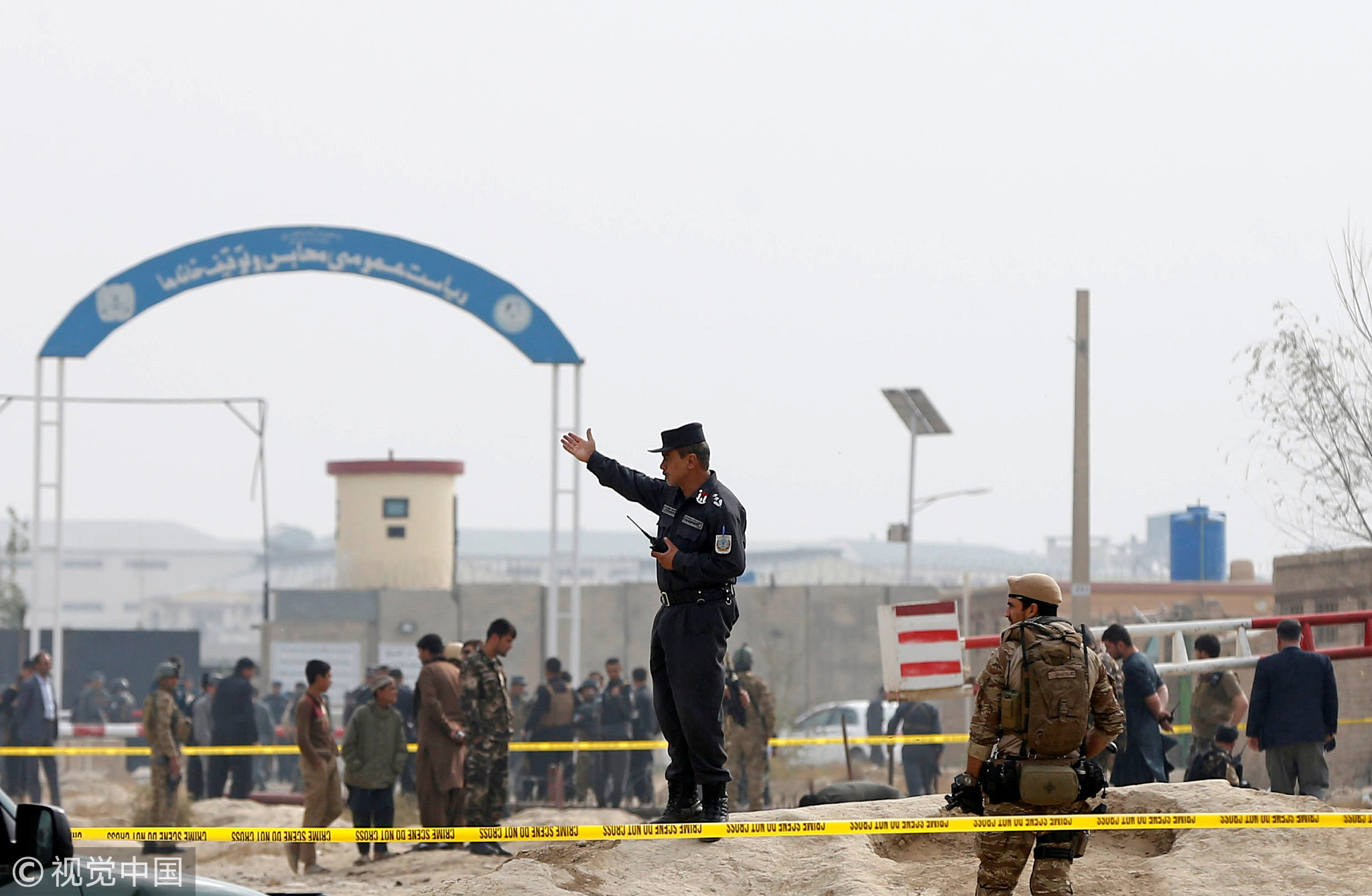
Afghan security forces inspect the attack site in Kabul, Afghanistan, October 31, 2018. /VCG Photo
Afghan security forces inspect the attack site in Kabul, Afghanistan, October 31, 2018. /VCG Photo
The attacks came amid a flurry of US-led diplomatic activity to convince the Taliban, Afghanistan's largest militant group, to negotiate an end to the 17-year war.
Earlier this month, newly appointed US peace envoy Zalmay Khalilzad met with Taliban representatives in Qatar.
Less than two weeks later a top Taliban commander held in Pakistani detention for more than eight years was freed.
4184km
Source(s): AFP

SITEMAP
Copyright © 2018 CGTN. Beijing ICP prepared NO.16065310-3
Copyright © 2018 CGTN. Beijing ICP prepared NO.16065310-3